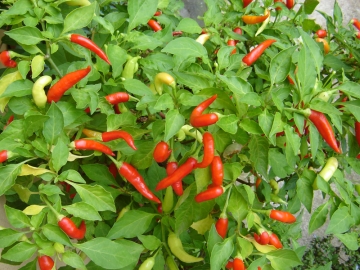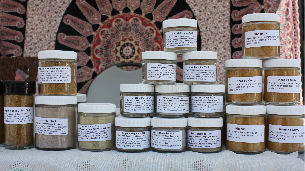
Cayenne does offer amazing heart and circulatory benefits. It boosts the circulation and enhances the action of the heart, while at the same time helping to lower blood pressure. Conversely, if your blood pressure is too low, it can help to raise it. Cayenne is called "the great equalizer" in herbal medicine, for this reason.
Capsaicin cream has been shown to help relieve osteoarthritis pain, post-herpetic neuropathy (the pain after shingles), and peripheral neuropathy, which can occur with diabetes and other conditions.
It's also handy in the kitchen for small cuts. Next time you nick yourself, sprinkle some Cayenne on your cut to help staunch the bleeding – it really works, often in less than a minute.
Sprinkle some in your boots to keep your toes toasty, too!
Cayenne is used both as medicine and food. There are different varieties of cayenne peppers, and they all contain capsaicin in different amounts. Capsaicin gives the peppers a hot and spicy taste, by switching on the same nerve ending that switches on when you're feeling heat greater than 110 degrees F. As a medicine, it acts as a systemic stimulant, regulating blood flow and strengthening the heart, capillaries, arteries and veins. As a general tonic, it strengthens nerves, circulatory system and digestive system. It is useful for flatulent dyspepsia, colic, cold hands and feet, chilblains, and other circulatory insufficiencies. Applied externally to a wound, it can stop bleeding. It has been used in heart attacks. It improves one's appetite and stimulates the secretion of digestive juices. It warms the stomach and helps in the removal of toxins. It is useful in all illnesses as a circulatory stimulant and antimicrobial. An an analgesic, it can be applied in a cream externally.

















